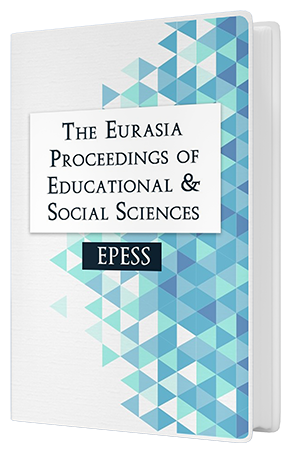THE EFFECTS OF USING SOMATOSENSORY VIDEOGAMES TO PROMOTE "LIFE-EFFECTIVENESS" OF CHILDREN IN ELEMENTARY SCHOOLS
Keywords:
Life effectiveness, somatosensory videogame, Xbox 360 kinect, educational technology, e-learningAbstract
With dramatic advancement of technology, children in elementary schools have much more opportunities to immerse in technology environment. However, children nowadays are facing a variety of challenges in emotional control, peer pressure, and social interactions and relationships due to rapid changes of social environment on campus. In order to develop their social capacities, it is important to provide appropriate activities with technology to enhance their life-effectiveness. Therefore, there is a crucial need to understand how to improve the life-effectiveness of children in elementary school. The purpose of this study was to explore their life-effectiveness by using somatosensory video games, Xbox 360 Kinect. A total of 84 participants were recruited and divided into an experimental group (n = 40) and control group (n = 44). The experimental group voluntarily agreed to complete 30-minute Xbox 360 Kinect trainings one time a week for total of 4 weeks. The Life-Effectiveness questionnaire was used to measure and complete before and after the intervention in both groups. The Wilcoxon nonparametric test for each two independent samples was used to evaluate time-series training effects. Results showed that experiment group significantly improved their self-effectiveness between pre and post-test (p < .05). The study concluded that using somatosensory video games is a potential tool to enhance the life-effectiveness of children in the elementary school. Further studies are suggested to validate possible follow-up benefits of somatosensory video games and to develop the best intervention model.Downloads
Published
Issue
Section
License
Copyright (c) 2015 The Eurasia Proceedings of Educational and Social Sciences

This work is licensed under a Creative Commons Attribution-NonCommercial-ShareAlike 4.0 International License.
The articles may be used for research, teaching, and private study purposes. Any substantial or systematic reproduction, redistribution, reselling, loan, sub-licensing, systematic supply, or distribution in any form to anyone is expressly forbidden. Authors alone are responsible for the contents of their articles. The journal owns the copyright of the articles. The publisher shall not be liable for any loss, actions, claims, proceedings, demand, or costs or damages whatsoever or howsoever caused arising directly or indirectly in connection with or arising out of the use of the research material. All authors are requested to disclose any actual or potential conflict of interest including any financial, personal or other relationships with other people or organizations regarding the submitted work.




